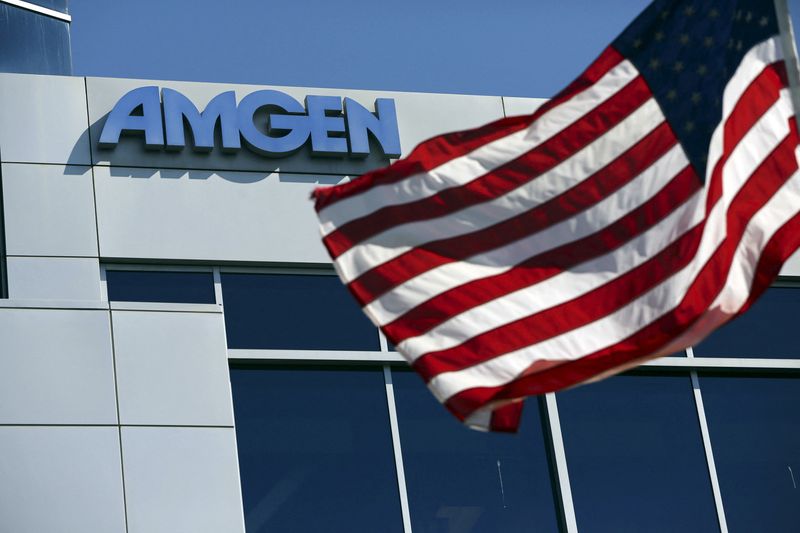Senate Finance Committee looks at Amgen taxes, widening drugmaker probe
2022.08.11 21:18

FILE PHOTO: An Amgen sign is seen at the company’s office in South San Francisco, California, October 21, 2013. REUTERS/Robert Galbraith
By Michael Erman
NEW YORK (Reuters) – The U.S. Senate Finance Committee is widening its investigation into the tax practices of U.S. drugmakers to include Amgen Inc (NASDAQ:AMGN), according to a letter sent on Thursday by the committee’s chairman, Senator Ron Wyden.
Amgen is already in the crosshairs of the U.S. Internal Revenue Service over its tax practices, particularly how it allocates profits between the U.S. and Puerto Rico.
The IRS is after more than $10 billion in back taxes and penalties the California-based biotech firm, although Amgen has said it believes the proposed adjustments and penalties are without merit.
Wyden, a Democrat from Oregon, and his committee have been looking into how the tax law passed by Republicans in 2017 has benefited large U.S. drugmakers like Amgen, Merck and AbbVie (NYSE:ABBV), and whether those companies have been exploiting foreign subsidiaries to avoid taxes.
He sent a letter to Amgen Chief Executive Robert Bradway on Thursday asking what methods the company has used in order to pay an average effective tax rate of around 12 percent over the past 4 years. Wyden’s office provided a copy of the letter to Reuters.
“We can confirm that Amgen received a letter from Chairman Wyden regarding the company’s tax practices. We are reviewing the information requests contained in the letter and will respond,” Amgen said in a statement.
Last year, Amgen generated 70% of its sales in the United States yet reported just 28% of its pretax income in the country, according to Wyden.
The Wyden letter also focuses on Amgen’s operations in Puerto Rico. Senator Wyden asked the company to provide to the committee financial documents, as well as other financial information, by the end of the month.
He also asked the company to provide any tax agreements it may have signed with Puerto Rican authorities, particularly agreements that might provide the company with a tax rate of 0% in Puerto Rico.








